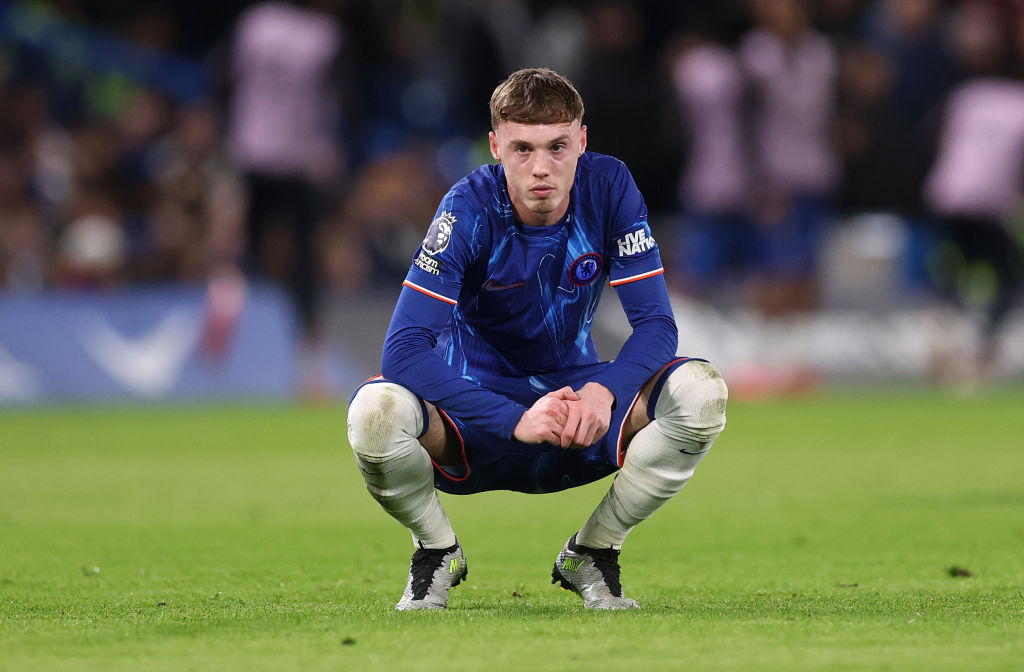Southgate: Racism sanctions are going to have to get higher and higher
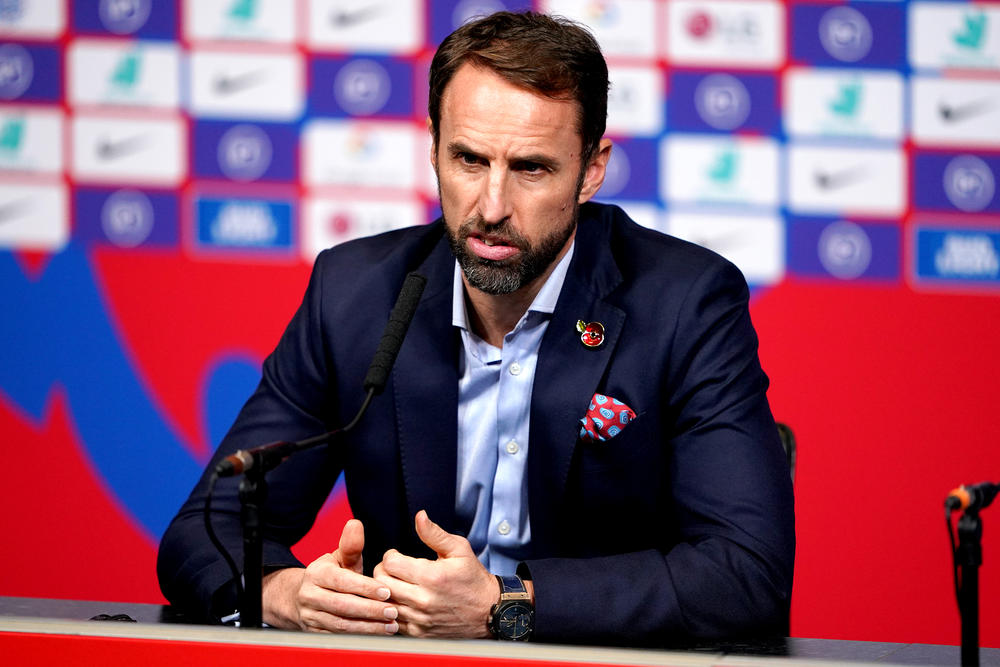
England boss Gareth Southgate believes sanctions for racism must become more severe.
Bulgaria have been ordered to play two matches behind closed doors – one suspended for two years – for their fans’ racist abuse of England players in last month’s Euro 2020 qualifier.
The Bulgarian Football Union was also fined £65,000 by UEFA for the incidents in England’s 6-0 win in Sofia, which was stopped twice by the referee.
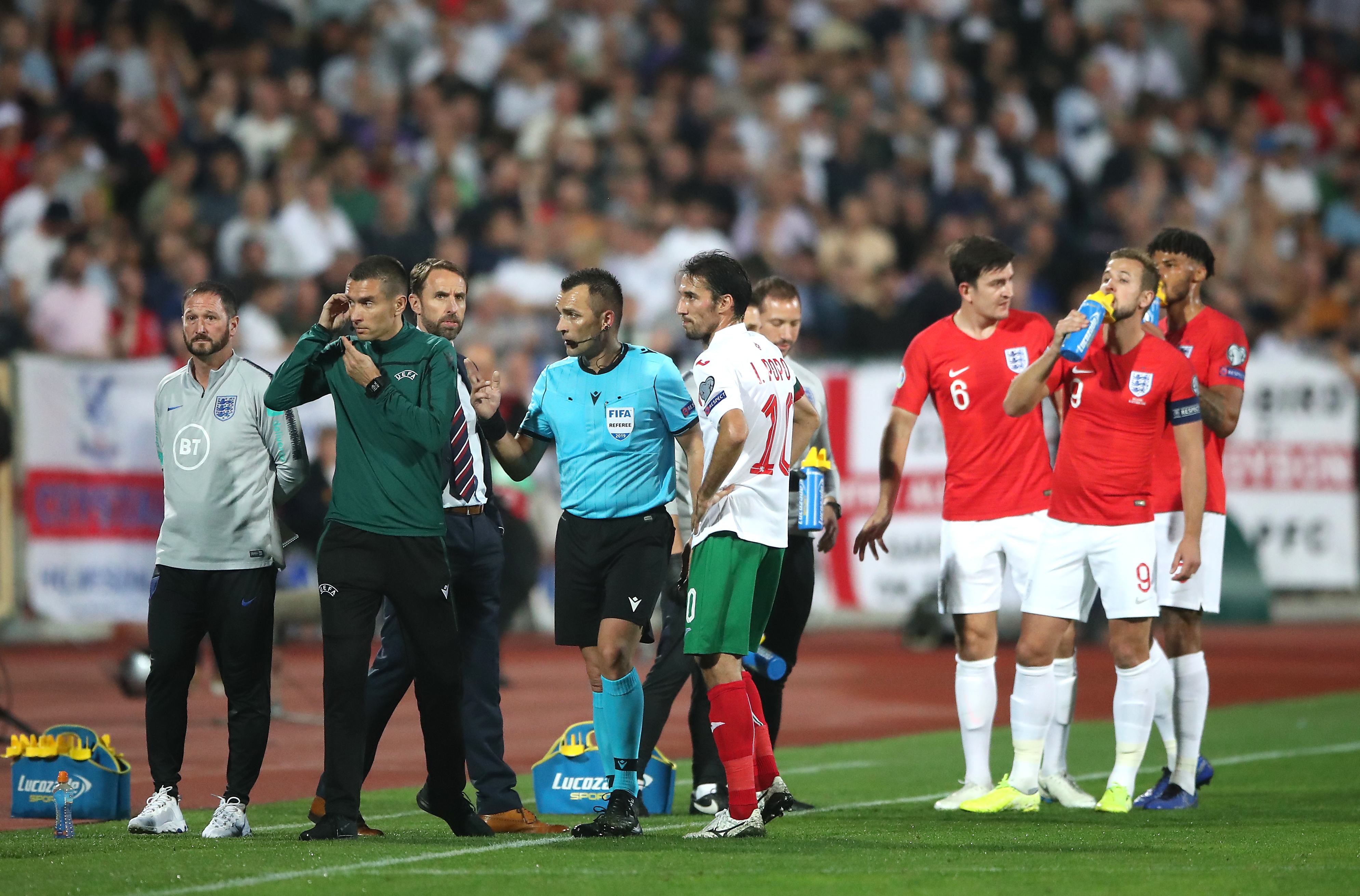
The punishment was criticised by anti-discrimination campaigners Kick It Out, the Professional Footballers’ Association and Fare.
And Southgate, who named his squad for this month’s Euro 2020 qualifiers with Montenegro and Kosovo on Thursday, expects to see tougher deterrents for racist abuse in the future.
He said: “We’ve got to continue the sanctions, I think the sanctions are going to have to get higher and higher, but I couldn’t honestly tell you what the right answer for that would be.
“I think it’s impossible to pitch and get consensus on. I understand that sanctions are important but other people have got to deal with that.
Get FourFourTwo Newsletter
The best features, fun and footballing quizzes, straight to your inbox every week.
'We feel Uefa’s entire disciplinary process in response to racial discrimination should be overhauled.'— Kick It Out (@kickitout) October 29, 2019
“What is important is we highlighted the process, which other clubs that have gone into Europe in the last couple of weeks I think are now more conscious of, because I think for everybody it wasn’t so clear for all that night.
“There is going to be a point actually where that will have to be reviewed because we went to a point and I think if that happens a few times, people are going to say: ‘Well, hang on a minute!’.
“But there are so many strands to those evenings in terms of the types of people that came into the game and left.”
England’s match against Bulgaria was stopped in the 28th minute and the first step of UEFA’s anti-racism protocol – a public address announcement calling on the abuse to stop – was enacted.
The abuse continued and Croatian referee Ivan Bebek halted the match again just before half-time, though it was later confirmed that this did not constitute the second step of the protocol under which the referee leads the teams from the field temporarily.
Monkey chanting and booing directed at England’s players and staff could still be heard during the second half, but the match was completed.
Southgate said: “It’s so complicated, having been involved in it now and stood on the touchline and have to make the decision when you’re asked.
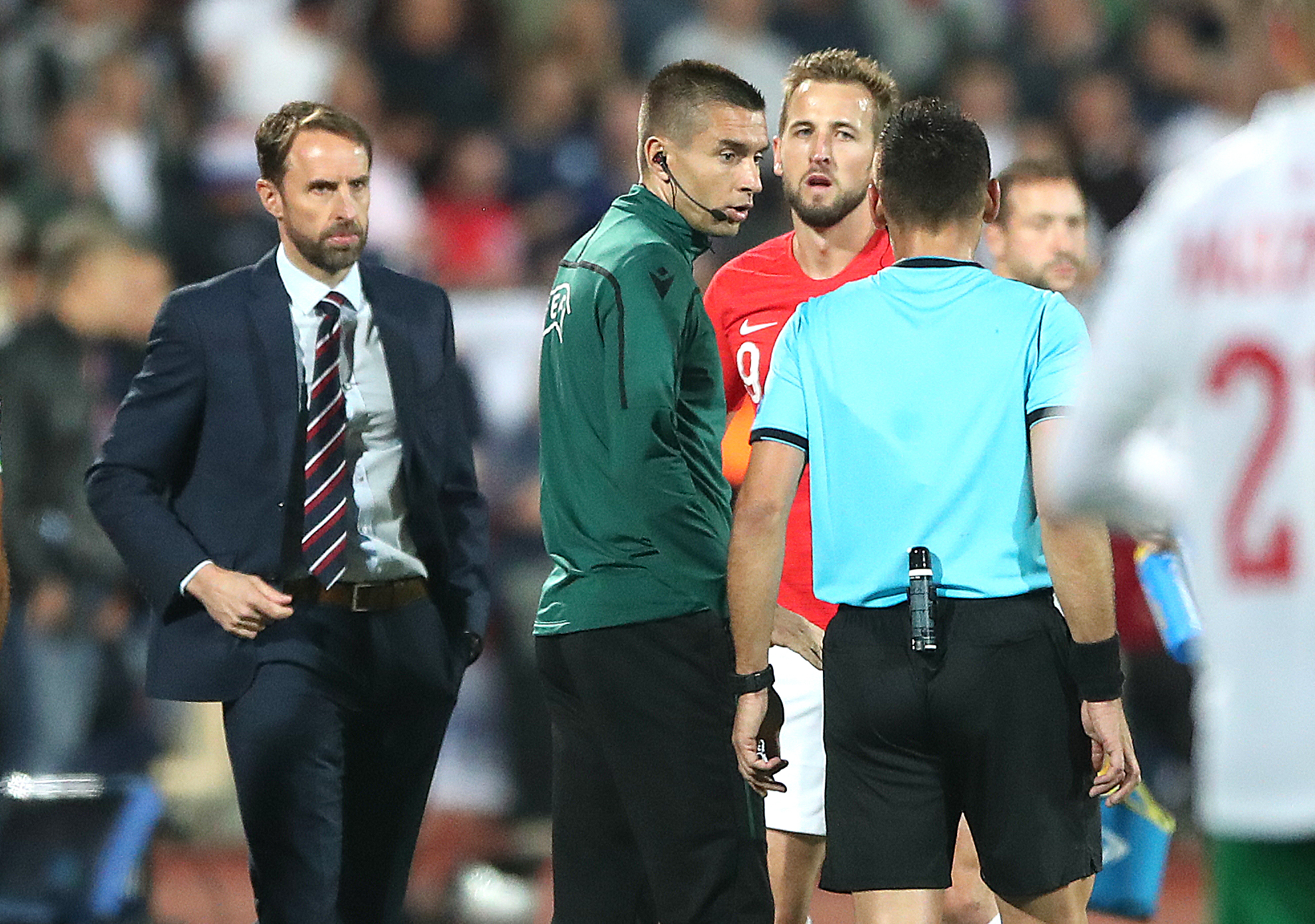
“All of those things – because you’ve got responsibilities – are much more difficult than when I used to sit and comment on what should happen in those areas.
“It depends on what we view as being enough. In some respects, if we had thrown Bulgaria out of the competition, that would’ve been easy as well because they’re out.”
But Southgate, whose England side can qualify for Euro 2020 with victory over Montenegro at Wembley next Thursday, insisted he still saw some good in Sofia.
Bulgaria captain Ivelin Popov tried to reason with a section of home supporters at half-time, with Southgate also pointing to problems in England.
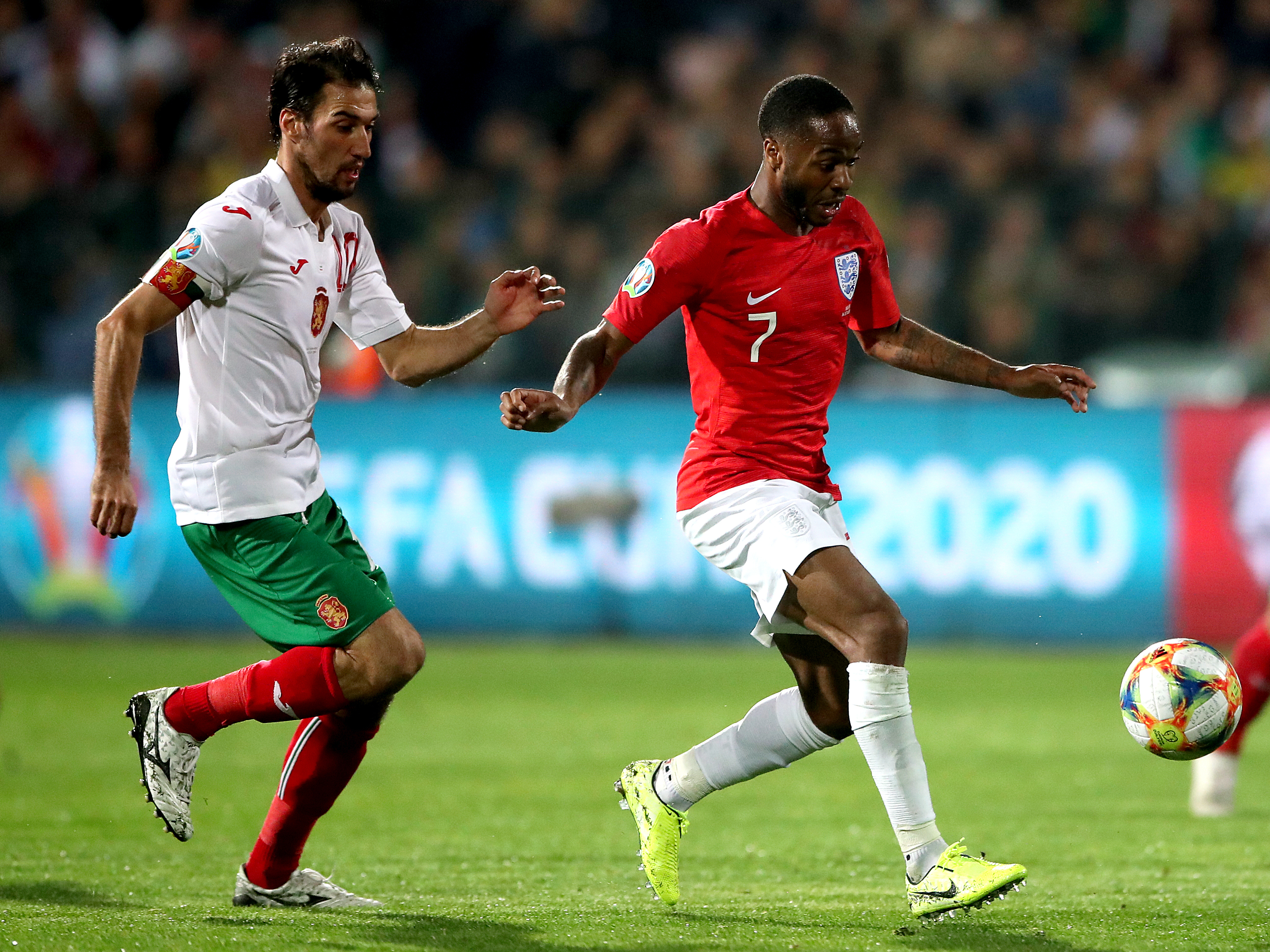
“In my head, I’ve got their captain, who probably was as brave as anyone on the field that night,” he said.
“Frankly, to go over to your own fans when you’re getting thrashed and to try and affect it in the way he did, I thought was a hugely commendable act.
“That can have consequences, as we all know, in going over and fighting that battle. So, would I want to see him as an individual punished?
“Certainly not. There were loads of kids in the stadium who were desperate for pictures with our players too. So, we made friends there.
[1/5] Following today's ruling by the independent UEFA Control, Ethics and Disciplinary Body [CEDB], we have issued the following statement:— FA Spokesperson (@FAspokesperson) October 29, 2019
“There’s no question we look at Bulgaria and think everything there was wrong. There were clearly people in the ground that have no place, as far as we’re concerned, in football.
“But, those people exist in our stadiums as well and we’re maybe better equipped at stopping them coming into the stadiums.
“That’s something that, in some countries, they’re going to have to get better at.”
FourFourTwo was launched in 1994 on the back of a World Cup that England hadn’t even qualified for. It was an act of madness… but it somehow worked out. Our mission is to offer our intelligent, international audience access to the game’s biggest names, insightful analysis... and a bit of a giggle. We unashamedly love this game and we hope that our coverage reflects that.

